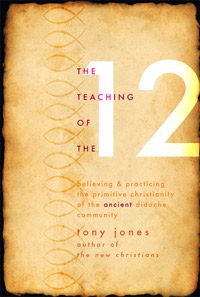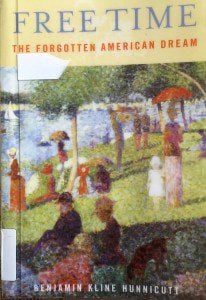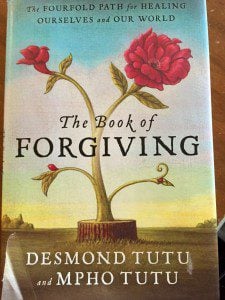Preview: Baptism is not overrated when it is viewed as a powerful sacrament and a transformative means of experiencing grace. And I recognize that many of my Baptist and Anabaptist forebears were persecuted, suffered, or died for the right to baptize adult believers as they saw fit according to their local congregation.Nevertheless, baptism is overrated anytime it is used as a barrier to Communion or even as a barrier to church membership. Open Communion to all without exception is both what Jesus did and what Jesus’ followers should be doing. I strongly support churches offering the practice of baptism as one among many spiritual practices — albeit a practice that is typically undergone only once — but I am not convinced, despite my Baptist heritage, that baptism is central to either Jesus’ public ministry or to the way of Jesus.
1 Concerning baptism, you should baptize this way: After first explaining all things, baptize in the name of the Father, and of the Son, and of the Holy Spirit, in flowing water. 2 But if you have no running water, baptize in other water; and if you cannot do so in cold water, then in warm. 3 If you have very little, pour water three times on the head in the name of Father and Son and Holy Spirit. 4 Before the baptism, both the baptizer and the candidate for baptism, plus any others who can, should fast. The candidate should fast for one or two days beforehand.
Father, and of the Son, and of the Holy Spirit, in flowing water. 2 But if you have no running water, baptize in other water; and if you cannot do so in cold water, then in warm. 3 If you have very little, pour water three times on the head in the name of Father and Son and Holy Spirit. 4 Before the baptism, both the baptizer and the candidate for baptism, plus any others who can, should fast. The candidate should fast for one or two days beforehand.
Didache 7
This post is the third in a six-part series on the ancient Christian document called the Didache (usually pronounced Did-ah-Kay). As a brief reminder, the title Didache literally means “The Teaching.” This ancient book is dated to about the same time that Paul is writing his letters or a little afterward: the 50s of the first century, about twenty years after the life of the historical Jesus. It was thought lost, only to be surprisingly rediscovered in a church library in Turkey in 1873.
The original focus of the Didache was likely as a training manual for Gentile converts to Jesus’ way. A Gentile-focused book such as the Didache was necessary because both Jesus and his earliest followers were, for the most part, Jews. The Didache was also major shift because it sought to adapt the radical, itinerant peasant lifestyle of Jesus and his earliest followers to the duties and concerns “of family, of occupation, of home — the very things that Jesus and his wandering apostles had left behind.”
Last week was looked at a huge swath of the Didache — the first six chapters — which are essentially a list of rules for how the Didachist, the anonymous author of the Didache, understands what is called “the way of life” versus “the way of death.” We also saw that in discerning between these two ways, Didache 6:2 offers what may be the most significant verses in the book: “For if you are able to bear the entire yoke of the Lord, you will be perfect; but if you are not able, then at least do what you can.” The pragmatism here is admirable. We will see a similar pragmatism this week in the Didache’s approach to Baptism. In future weeks we will consider the Didache’s advice on Communion, wandering prophets, and church leadership, but for now let us turn our attention to chapter 7 of the Didache, which focuses on the practice of baptism.
Remember Your Baptism
For us to begin to reflect together about baptism, I would like to start with a guided meditation to help you remember your baptism, if you were baptized as an adult, or to help you remember any baptisms you may have witnessed. If you are comfortable, close your eyes.
Can you remember your baptism?
If you were baptized as an infant or have not been baptized, think back to a baptism you have witnessed.
Remember the sound of the water. The splash of hands dipping into the font or the rush of noise as you rose from the water.
Remember the touch of the hands that baptized you. The strength of the arms that held you.
Remember the temperature of the water: were you warm or cold or somewhere in between?
Remember the resonance of the words that were spoken: “I baptize you — in the name of the Father, and of the Son, and of the Holy Spirit.” Or “in the name of the Creator, the Christ, and the Comforter.” Or perhaps some similar formulation.
Remember the faces of those who were present, those who witnessed your baptism and smiled…or wept with pride or joy.
Remember the first time you saw someone baptized.
What else do you remember about your baptism or the baptism of others?
Where there other distinctive feelings, sounds, sights, or even tastes or smells?
Continue to hold these memories in your head and your heart as we continue.
Learning to Swim in Baptismal Waters
I was baptized as a child, and my assumption was that my baptism was mostly about me. When I stepped into the water of the baptismal pool, I thought it was because I had made a decision to join the church. There were other people being baptized that day, and I assumed that their baptism was mostly about them and that the congregation was there to watch. But I have come to see that there are many different modes of baptism and many different motivations for being baptized. For some of you, remembering your baptism may be painful because of a conflict surrounding the ritual. For others, it may be a joyous memory. Whatever the circumstance, this morning I invite you to explore if remembering your baptism might become for you a source of grace.
One theologian makes a helpful comparison between baptism and the movie Toy Story 2, part of an animated trilogy of films that many of you have likely seen or heard about. The basic premise revolves around toys who come to life when their owners turn their backs or leave the room. One of the lead characters is a toy cowboy named Woody — complete with ten-gallon hat, cowhide vest, and leather boots. While his owner is away at summer camp, Woody is accidentally made part of a yard sale and kidnapped by a corrupt toy collector.
Woody wakes up in a dark room, and finds himself accosted by three strangers: Bullseye, a clumsy, but lovable horse; a spunky, red-haired cowgirl named Jessie; and an olde-tyme Prospector with a white beard named Stinky Pete. Jessie takes one look at Woody and says, “It’s you, it’s you, it’s really you.” The Prospector concurs, “It’s good to see you, Woody.” But Woody has never seen them before, and can’t figure out how they know his name. The Prospector sees his confusion and says, “Why you don’t know who you are, do you?”
Suddenly a light shines in the darkness, and Woody is awestruck by a room filled with toy paraphernalia — lunch boxes, cutouts, cartoons, plates, banners, clocks, yo-yos — all with his face on it. There’s even an issue of Life Magazine with Woody on the cover. Jessie pipes up and says, “Didn’t ya know? Why you’re valuable property.” Woody had no idea that he is more than just a toy cowboy. He is Sheriff Woody, part of the much larger world of The Roundup Gang.
And so it is with baptism. It is often the case that others know who we are before we do. You’re not just anyone. You’re a child of God. You’re part of the much larger world of God’s story. Whether you know it or not, Israel’s story is part of your story. Jesus’ story is part of your story. The church’s story is part of your story. Baptism is not just a one-time event for the baptismal candidate. Baptism part of a lifelong journey into the past, present, and future story of God’s liberating work in the world. And for those in the congregation, baptism is not just a spectator sport. When someone is baptized, the whole body of Christ is reconstituted, and we are all reminded afresh that God’s story contains our true identity.
Remembering your baptism means learning that whether you are aware of it or not, God is already there, naming your true identity long before you are able to articulate it and claim it for yourself. That’s grace. Whenever someone makes a decision to follow Jesus in the practice of baptism — or whenever you take time to remember your baptism — you are invited to hear anew the words spoken to Jesus as he rose out of the water: “You are my Child, the Beloved; with you I am well pleased” (Mark 1:11). Those words were spoken specifically to Jesus, but they are also words that have meaning for us if we have ears to hear. However and whenever you were baptized, God was present, naming you as a beloved child of God.
But the belovedness declared at our baptism is not a story we often hear outside the church. The author and priest Henri Nouwen says,
You have to keep unmasking the world about you for what it is: manipulative, controlling, power-hungry and, in the long run, destructive. The world tells you many lies about who you are, and you simply have to be realistic enough to remind yourself of this. Every time you feel hurt, offended or rejected, you have to dare to say to yourself: “These feelings, strong as they may be, are not telling me the truth about myself. The truth, even though I cannot feel it right now, is that I am the chosen child of God, precious in God’s eyes, called the Beloved….”
Put simply, life is a God-given opportunity to become who we are, to affirm our own true spiritual nature, claim our truth…but, most of all, to say “Yes” to the One who calls us the Beloved.
Our belovedness is our true self, but we have to learn to swim in these grace-filled waters. We have to learn because as the church father Tertullian (c. 160 – c. 225) said, “Christians are made, not born.” Grace is always already present, but we must develop the faculties to receive it evermore fully. And embracing the grace of our baptism is not only for the benefit of our own spiritual growth. Nouwen makes the further claim that,
The greatest gift my friendship can give to you is the gift of your Belovedness by God. I can give that gift only insofar as I have claimed it for myself. Isn’t that what friendship is all about: giving to each other the gift of our Belovedness?
As we are baptized into the community of the church and as we remember our baptism, we are challenged to embrace our belovedness by God that we may share this good news with others.
But your baptismal swimming lessons don’t end here. After Jesus is declared the “Beloved” at his baptism, we read in the very next verse that, “the Spirit immediately drove him out into the wilderness” (Mark 1:12). The same Spirit that descended on Jesus at his baptism also drove Jesus into the desert. But we’ll enter the season of Lent soon enough. For now, it the season of Epiphany, and we can rest in the revelation of God’s love for us — a love that is with us even through trial and temptation. So this morning, may continue to live into the grace of your belovedness by God, declared to you at your baptism; may you grow into your baptismal garments; and may you learn to swim in baptismal waters.
Baptism in the Didache
Having named the powerful grace that the practice of baptism at its best can channel, let us turn our attention to the four brief verses that the Didache allots to baptism. Here you see again the pragmatism of Didache 6:2, “For if you are able to bear the entire yoke of the Lord, you will be perfect; but if you are not able, then at least do what you can.” The Didache’s ideal baptism seems to be a relatively large body of flowing cold water in which one would presumably be immersed (7:1). But the Didachist hastens to add that still, warm water will suffice if you don’t have access to the former (7:2). And say you are in a desert or in the midst of a drought, even “very little” water, poured “three times on the head” is sufficient (7:3).
Scholars also argue, convincingly in my opinion, that the Didache does not support infant baptism. The instructions to “explain all things” about the way of Jesus — the way of life and the way of death in the first six chapters — before baptism would exclude infants (1:1), as would the instructions to for the baptismal candidate to fast “for one or two days beforehand” (1:4).
I would, however, argue that the practice of infant baptism can be a powerful declaration of grace, and in traditions that practice infant baptism, there is a generally an equivalent to adult baptism (or “believer’s baptism”) in the practice of confirmation during one’s adolescence years.
John’s Baptism Movement and Jesus’ Kingdom Movement
Before concluding this sermon, it is important to name, as we have discussed before that arguably there is a major difference between the baptism movement of John the Baptist and the kingdom movement of Jesus. We saw two weeks ago that Jesus commissioned his earliest followers, not to baptize, but to visit households, share in open table fellowship, and teach about the kingdom of God.
In my understanding, during a period of time when Jesus was a disciple of John the Baptizer (which was part of Jesus’ discernment of how and when to enter his own public ministry), Jesus had a powerful experience of his belovedness by God, while being baptized by John. We, in turn, are invited to similarly experience God’s grace through baptism. But there are many other means of experiencing God’s grace: prayer, communion, and many other spiritual practices.
This perspective leads me to the question, “Is baptism overrated?” My answer is both “Yes” and “No.” I hope it is clear from the first part of this sermon that, on one hand, “No, baptism is not overrated” when it is viewed as a powerful sacrament and a transformative means of experiencing grace. And I recognize that many of my Baptist and Anabaptist forebears were persecuted, suffered, or died for the right to baptize adult believers as they saw fit according to their local congregation.
Nevertheless, I would add that, “Yes, baptism is overrated,” anytime it is used as a barrier to Communion or even as a barrier to church membership. Open Communion to all without exception is both what Jesus did and what Jesus’ followers should be doing. I strongly support churches offering the practice of baptism as one among many spiritual practices — albeit a practice that is typically undergone only once — but I am not convinced, despite my Baptist heritage, that baptism is central to either Jesus’ public ministry or to the way of Jesus.
The Sacrament of Silence
During the contemplative silence to follow, I invite you to reflect on what is meaningful or memorable to you about baptism:
Have you experienced God through the waters of baptism, either during your baptism or the baptism of another person?
If you have not been baptized, is God calling you toward baptism?
If you have been baptized, I invite you to remember your baptism. How did or didn’t you experience God through the waters of baptism?
For Further Study
Sara Miles, Take This Bread: A Radical Conversion. On the powerfully transformative of open Communion (without the barrier of baptism), I cannot recommend this memoir highly enough. An excerpt from a review: “Early one morning, for no earthly reason, Sara Miles, raised an atheist, wandered into a church, received communion, and found herself transformed — embracing a faith she’d once scorned. A lesbian left-wing journalist who’d covered revolutions around the world, Miles didn’t discover a religion that was about angels or good behavior or piety; her faith centered on real hunger, real food, and real bodies. Before long, she turned the bread she ate at communion into tons of groceries, piled on the church’s altar to be given away. Within a few years, she and the people she served had started nearly a dozen food pantries in the poorest parts of their city.Take This Bread is rich with real-life Dickensian characters–church ladies, millionaires, schizophrenics, bishops, and thieves–all blown into Miles’s life by the relentless force of her newfound calling. Here, in this achingly beautiful, passionate book, is the living communion of Christ.”
For Further Study on the Didache
- Aaron Milavec’s The Didache: Text, Translation, Analysis, and Commentary is an accessible, condensed version of his massive tome The Didache: Faith, Hope, and Life of the Earliest Christian Communities, 50-70 C.E.
- Tony Jones’ The Teaching of the Twelve: Believing & Practicing the Primitive Christianity of the Ancient Didache Community is another accessible entry point. And there is a supplemental DVD.
- Thomas O’Loughlin, The Didache: A Window on the Earliest Christians.
- Read the text of the Didache for yourself free online at http://www.paracletepress.com/didache.html.
Previous Sermons in this Series
- Preaching the Didache: What Is Your Canon and Why? (Didache 1).
- The Pragmatism of the Didache: At Least Do What You Can (Didache 2-6).
Notes
1 For more on the history of the Didache’s modern rediscovery, see Tony Jones, The Teaching of the Twelve: Believing & Practicing the Primitive Christianity of the Ancient Didache Community, 4-5.
The Didache does not have any seeming knowledge of Paul’s letters or of the Gospels. For more, see Aaron Milavec, The Didache: Faith, Hope, and Life of the Earliest Christian Communities, 50-70 C.E., 789.
As late as the fourth-century, some prominent early Christian writers, such as Eusebius (c. 263–339 C.E.) and Athanasius (c. 296-373 C.E.), “even considered it to be on the fringe of the New Testament canon,” but it ultimately proved to be known and used in too small a region to make the final cut for the most universally recognized collection that we know today as the New Testament. For more, see Bruce Metzger in The Canon of the New Testament: Its Origin, Development, and Significance (49).
2 “The original focus of the Didache was likely as a training manual for Gentile converts to Jesus’ way.” — Milavec, The Didache: Faith, Hope, and Life of the Earliest Christian Communities, 50-70 C.E., vii.
3 “adapt the way of Jesus to the exigencies of family, of occupation, of home — the very things that Jesus and his wandering apostles had left behind.” — Aaron Milavec, The Didache: Text, Translation, Analysis, and Commentary, x:
4 Tony Jones particularly highlights the significance of the pragmatism of Didache 6:2 in his book The Teaching of the Twelve: Believing & Practicing the Primitive Christianity of the Ancient Didache.
5 The theologian who makes the comparison between baptism and Toy Story is Kathryn Self. She is quoted in Elizabeth Newman, “Learning to Live into Our Baptism,” The Clergy Journal, vol. 80, no. 4 (February 2004), 19-20.
6 Henri Nouwen, Life of the Beloved: Spiritual Living in a Secular World, 59, 133. The boldfaced emphasis is mine.
7 Nouwen, 30.
8 “Learning to swim in baptismal waters” and “growing into your baptismal garments” — I first heard these phrases used by Dr. Fred Edie, Director of the Duke Youth Academy, when I served as a mentor for their program in summer 2003. I recommend his book Book, Bath, Table, and Time: Christian Worship as Source and Resource for Youth Ministry.
9 On the Didache’s views of paedobaptism (“infant baptism”) versus credobaptism (adult, “believer’s baptism”), see The Didache: Faith, Hope, and Life of the Earliest Christian Communities, 50-70 C.E., 260.
10 For more on the difference between Jesus’ Kingdom Movement and John’s Baptism movement, see my sermon “Harold Camping, John the Baptizer, and Jesus: We Are The Ones We’ve Been Waiting For” at http://broadviewchurch.net/2011/06/sermon-3/.
11 Concerning Jesus’ emphasis on table fellowship and the kingdom, see Luke 10:1-11, “After this the Lord appointed seventy others and sent them on ahead of him in pairs to every town and place where he himself intended to go…. Go on your way. See, I am sending you out like lambs into the midst of wolves. Carry no purse, no bag, no sandals; and greet no one on the road. Whatever house you enter, first say, ‘Peace to this house!’ And if anyone is there who shares in peace, your peace will rest on that person; but if not, it will return to you. Remain in the same house, eating and drinking whatever they provide, for the laborer deserves to be paid. Do not move about from house to house. Whenever you enter a town and its people welcome you, eat what is set before you; cure the sick who are there, and say to them, ‘The kingdom of God has come near to you.’ But whenever you enter a town and they do not welcome you, go out into its streets and say, ‘Even the dust of your town that clings to our feet, we wipe off in protest against you. Yet know this: the kingdom of God has come near.’”
There are at least two notable counter-arguments to my position. The first is the so-called “Great Commission” in Matthew 28:19, which says, “Go therefore and make disciples of all nations, baptizing them in the name of the Father and of the Son and of the Holy Spirit,” but this saying almost certainly reflects the practice of some parts of the early church more than it does the words of the historical Jesus.
Second, John 3:22 claims that, “Jesus and his disciples went into the Judean countryside, and he spent some time there with them and baptized,” but this whole segment, which continues into John 4, again, almost certainly reflects later, early church anxieties about Jesus being baptized by John (which could make John appear superior to Jesus). This view is strongly supported by John 4:1, which doth protest too much: “Now when Jesus learned that the Pharisees had heard, “Jesus is making and baptizing more disciples than John.”
I should also add that the Didache disagrees with me: “Allow no one to eat or drink of your Eucharist, unless they have been baptized in the name of the Lord. For concerning this, the Lord has said, ‘Do not give what is holy to dogs'” (9:5). However, I would argue that this perspective misses the insight Jesus learned from the Syro-Phoenician woman. For more, see my sermon, “Jesus Had a Lot to Learn” (Mark 7).
12 For more on Baptist history, see Bill Leonard, Baptist Ways: A History.
13 Initiation rituals and baptismal practices were also highly diverse in the early centuries of Christianity. For more, see Paul Bradshaw, The Search for the Origins of Christian Worship: Sources and Methods for the Study of Early Liturgy, chapter 7, “Christian Initiation: A Study in Diversity.”
The Rev. Carl Gregg is a trained spiritual director, a D.Min. candidate at San Francisco Theological Seminary, and the pastor of Broadview Church in Chesapeake Beach, Maryland. Follow him on Facebook (facebook.com/carlgregg) and Twitter (@carlgregg).
















